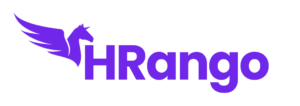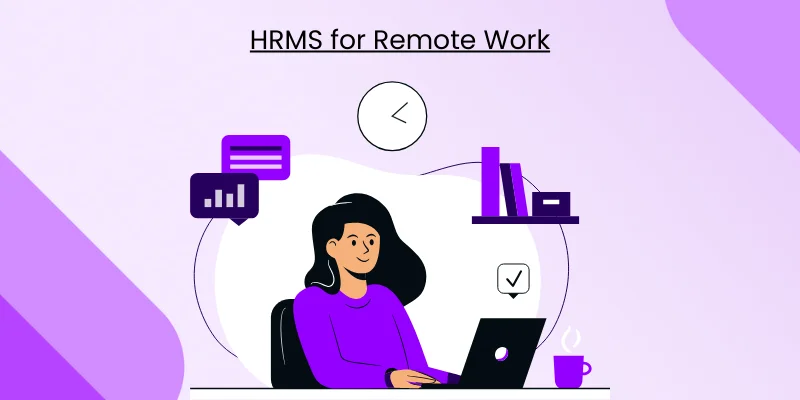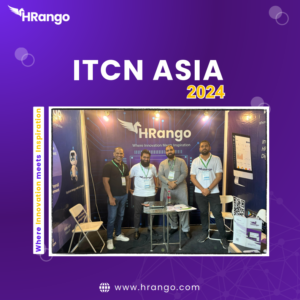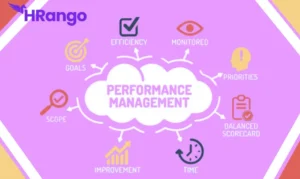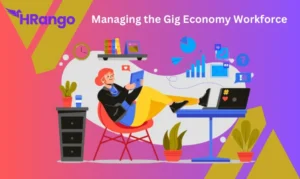Introduction
As HRMS for remote work becomes the standard across various industries, businesses must adapt to this new normal. Managing a remote workforce presents unique challenges that traditional HR methods struggle to address. Enter Human Resource Management Systems (HRMS), which have become essential in managing these challenges effectively. In this context, hRango, a leading HRMS platform, has emerged as a vital tool for businesses navigating remote work. But what exactly makes HRMS so crucial in this era, and how does Hrango stand out?
What is HRMS?
Human Resource Management Systems (HRMS) are software platforms designed to automate and streamline HR functions such as payroll, attendance tracking, employee data management, and more. These systems have evolved significantly, especially with the rise of remote work. The need to manage employees who are not physically present in an office has accelerated the adoption of HRMS, making it a cornerstone of modern business operations.
The Emergence of Remote Work
Remote work has shifted from being an occasional perk to a permanent aspect of many jobs. This shift, driven by the global pandemic and technological advancements, has fundamentally changed how businesses operate. According to recent surveys, a substantial portion of the workforce now works remotely at least part of the time, and this trend is expected to continue.
The rise of remote work has led companies to rethink their operational strategies, particularly in how they manage their workforce. HRMS platforms like hRango have become indispensable in this transition, offering the tools needed to manage remote teams efficiently.
Challenges of Remote Work
Working remotely presents several challenges that can be difficult to navigate without the right tools. Communication barriers are one of the most significant issues, as teams are often spread across different locations and time zones. Additionally, tracking productivity and performance remotely can be challenging without appearing intrusive.
Employee engagement and well-being are also harder to manage when employees are not physically present in the office. These challenges highlight the need for a robust HRMS that can address these issues while fostering a productive and supportive work environment.
How HRMS Facilitates Remote Work
HRMS platforms are designed to address the unique challenges of remote work by providing tools that streamline communication, automate administrative tasks, and track employee performance. For instance, hRango’s platform offers integrated communication tools that make it easier for teams to stay connected, regardless of their location.
Automating routine tasks such as payroll processing and attendance tracking allows HR teams to focus on more strategic initiatives. Moreover, HRMS platforms offer analytics and reporting tools that provide insights into employee performance, helping managers make informed decisions about their remote teams.
Key Features of an Effective HRMS for Remote Work
An HRMS tailored for remote work should include several key features:
- Cloud-Based Accessibility: A cloud-based HRMS ensures that all HR functions are accessible from anywhere, which is crucial for remote teams. hRango excels in this area, providing a seamless user experience across devices and locations.
- Time and Attendance Management: Tracking work hours and attendance remotely can be challenging. hRango’s system automates this process, ensuring accuracy and transparency.
- Payroll and Benefits Administration: Remote work should not complicate payroll and benefits administration. hRango simplifies these processes, making it easy for HR teams to manage payments and benefits across different locations.
- Employee Self-Service Portals: Empowering employees to manage their own HR tasks, such as updating personal information or applying for leave, is essential in a remote setting. hRango’s self-service portals are intuitive and user-friendly.
- Compliance Management: Ensuring compliance with local labor laws and regulations can be complex, especially for remote teams. hRango provides tools to manage compliance effortlessly.
Hrango: A Case Study in Effective HRMS for Remote Work
hRango has positioned itself as a leader in HRMS, particularly for companies with remote workforces. The platform’s comprehensive feature set and user-friendly design have made it a popular choice for businesses of all sizes.
Features that Make Hrango Ideal for Remote Teams:
- Cloud Integration: hRango’s cloud-based system ensures that all HR functions are accessible anytime, anywhere, making it perfect for remote teams.
- Automation: From payroll to compliance, hRango automates routine tasks, freeing up time for HR teams to focus on strategic initiatives.
- User Testimonials: Companies using Hrango have reported significant improvements in efficiency, communication, and employee satisfaction. These testimonials highlight hRango’s effectiveness in managing remote teams.
Enhancing Employee Engagement with HRMS
Employee engagement is crucial for maintaining productivity, especially in a remote work environment. hRango offers several tools to enhance engagement:
- Virtual Team Building and Collaboration Tools: hRango integrates with popular collaboration tools like Slack and Zoom, making it easy to organize virtual team-building activities.
- Feedback and Recognition Systems: Continuous feedback and recognition are vital for keeping employees motivated. hRango’s platform includes tools for providing real-time feedback and recognizing employee achievements.
- Continuous Learning and Development: hRango offers learning management features that allow companies to provide ongoing training and development opportunities, helping employees grow and stay engaged.
HRMS and Compliance in Remote Work
Compliance is a critical concern for companies with remote employees, especially when those employees are spread across different regions with varying labor laws. hRango helps companies stay compliant by offering tools that automate compliance tracking and reporting, ensuring that all legal requirements are met.
Integration with Other Tools
hRango’s HRMS is designed to integrate seamlessly with other tools that remote teams frequently use:
- Collaboration Tools: Integration with tools like Slack and Zoom ensures that communication is smooth and efficient.
- Project Management Tools: Hrango can also integrate with project management platforms like Asana and Trello, providing a unified system for managing both HR and project-related tasks.
Cost-Effectiveness of HRMS for Remote Work
Implementing an HRMS like Hrango can lead to significant cost savings. By automating routine tasks and reducing the need for physical office space, companies can lower their operational costs. Additionally, the ROI of an HRMS is often realized through improved efficiency and productivity.
Hrango’s Impact on Remote Work Efficiency
hRango has had a significant impact on the efficiency of remote work processes. By streamlining HR functions and providing tools that enhance communication and collaboration, Hrango has helped companies navigate the complexities of remote work. Compared to competitors, Hrango stands out for its user-friendly interface, robust feature set, and excellent customer support.
Choosing the Right HRMS for Your Remote Workforce
When selecting an HRMS for your remote team, it’s important to consider factors such as ease of use, scalability, and integration capabilities. hRango excels in all these areas, making it a strong contender for any company looking to optimize their remote work operations.
The Future of HRMS in Remote Work
The future of HRMS is closely tied to the continued growth of remote work. As more companies embrace flexible work arrangements, HRMS platforms will continue to evolve, offering new features and capabilities that cater to the needs of a distributed workforce. Hrango is at the forefront of these innovations, continually updating its platform to meet the changing demands of the modern workplace.
Conclusion
In the new normal of remote work, HRMS platforms like hRango are essential for managing the unique challenges that come with a distributed workforce. From streamlining communication to ensuring compliance, hRango provides the tools needed to keep remote teams productive and engaged. As businesses continue to adapt to this new way of working, HRMS will play an increasingly important role in shaping the future of work.
FAQs
How does HRMS support remote work?
HRMS supports remote work by providing tools that facilitate communication, automate administrative tasks, and track employee performance, making it easier to manage a distributed workforce.
What are the essential features of HRMS for remote teams?
Essential features include cloud-based accessibility, time and attendance management, payroll administration, employee self-service portals, and compliance management.
How does Hrango compare with other HRMS platforms?
Hrango stands out for its user-friendly interface, robust feature set, and excellent customer support, making it an ideal choice for remote teams.
Can HRMS help with remote work compliance?
Yes, HRMS platforms like Hrango offer tools that automate compliance tracking and reporting, ensuring that companies meet all legal requirements.
How do I choose the best HRMS for my company?
Consider factors such as ease of use, scalability, integration capabilities, and customer support when selecting an HRMS. Hrango is a strong contender due to its comprehensive features and excellent support.
